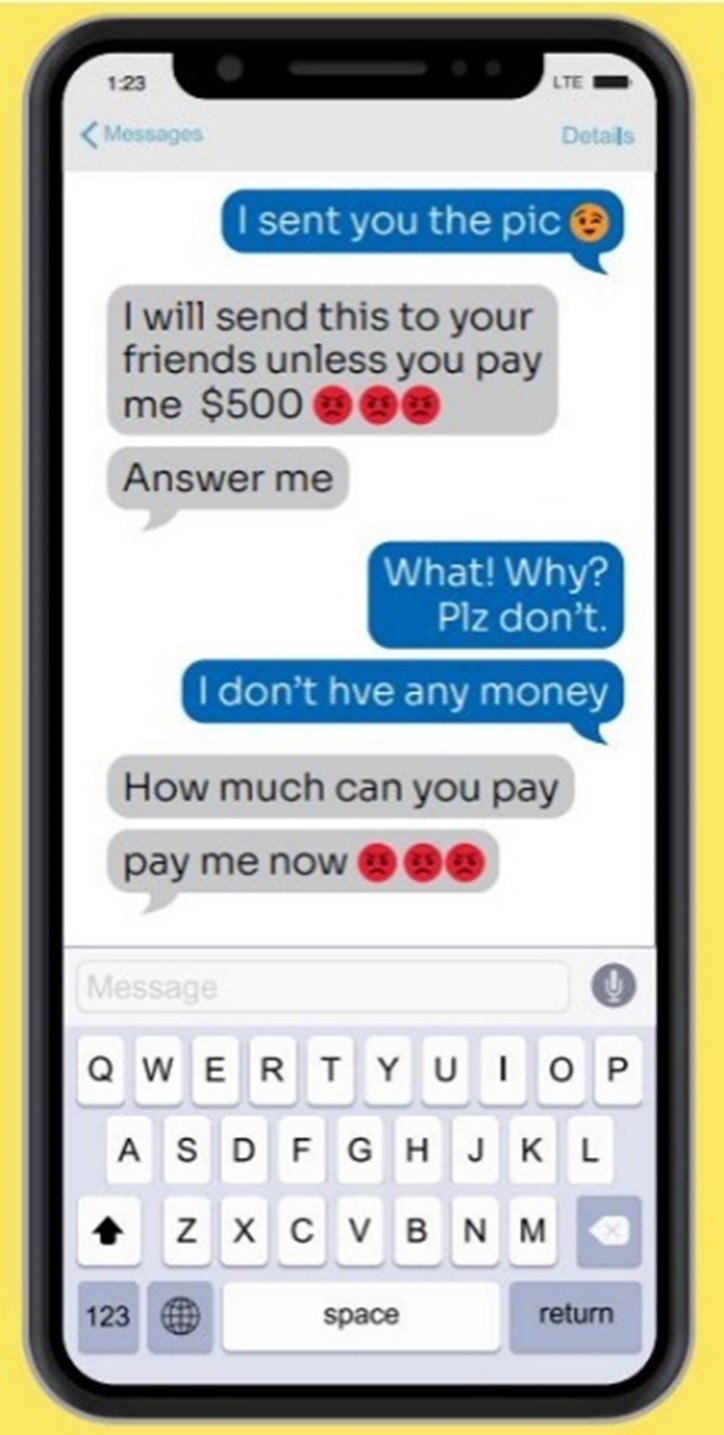What are sextortion scams?
Sensitive content: This content may be distressing for some due to topics related to sexual exploitation/extortion. It is recommended that you do not read further if you may be impacted by the content.
Sexual extortion, also known as sextortion, is a form of online blackmail. It's where someone tricks or coerces you into sending images of yourself, which may be of a sexual nature. They may use these images as-is or alter the images and threaten to share the images online with friends and family unless you agree to their demands. Victims often feel they have done something wrong. They think they will be punished by parents or carers, or prosecuted by police, if their actions are discovered.
Right now, Australia is experiencing a global trend of offenders mainly targeting teenage boys with requests to send sexual images and then threatening to share them unless they pay. In some instances, child victims are being forced to become money mules when they can no longer meet blackmail demands.
Sextortion can happen on any interactive service. It can include image and video sharing, instant messaging or social media apps.
If you are under the age of 18 and this has happened to you (or another young person you know), you are a victim of online child sexual abuse.
You are not alone, talk to someone you know or contact 000.
What to look out for:
- Unsolicited friend or follow requests or random adds from people you don’t know;
- Suddenly sexualised questions or conversations;
- Instantly receiving sexual images from a fake profile who asks for the same from you;
- Getting a direct message on one app, then being asked to continue chatting on a different app;
- Signs that English may be a second language; such as incorrect grammar or spelling;
- The fake profile might say that their webcam or microphone are not working for video calls/chats;
- The fake profile says that they promise to delete your content.
Dos:
- Do stop the chat
- Do take screenshots of the text and profile
- Do block the account and report it to the platform
- Do report to the ACCCE
- Do get support
Don’ts:
- Don’t send any images
- Don’t pay
- Don’t respond to demands
- Don’t enter into further communication
- Don’t think you’re alone
Do you need help?
If you are under the age of 18 and this has happened to you (or another young person you know), you are a victim of online child sexual abuse.
If you or another person is in a life threatening situation, please call 000.
To report or get help: ACCCE- external site (Australian Centre to Counter Child Exploitation).

Let us know ASAP if you think you have been the victim of a scam
Things to remember
- Never provide your 6-digit e-banking security code to anyone - in person, over the phone or online even if they claim to work for your bank and have personal information about you.
- Never provide a caller with remote access to your computer.
- We will never ask you for your e-banking PIN, e-banking password or 6-digit e-banking security code.
- We will never ask you to login to e-banking via a link sent in an SMS or sent in an email.
- We may call from time to time and ask to verify your identity by asking for your verbal password. However, we will never ask you for any PIN, password or security code relating to your e-banking. If you feel uncomfortable, you can always verify our branch contact details on our website and call us back.
If you need help or more information
Phone
If you have clicked on any suspicious links and entered your e-banking details:
Call 1300 236 344 (in Australia) or +61 3 5445 0666 (from overseas - standard international call charges apply)
- Monday to Friday - 8am to 9pm AEST/AEDT*
- Weekends and some public holidays - 9am to 8pm AEST/AEDT
*Excludes Christmas Day
SMS
If you have received a suspicious SMS message claiming to be from us, you can forward it to 0429 557 997 for investigation.
Please note you will not receive a personal response from 0429 557 997.
If you have received any suspicious emails, you can forward them to us via email.
Please note you will not receive a personal email response from us.


